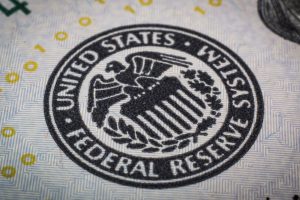The Federal Reserve’s proposal for its own instant payment network is causing a panic for big banks as they worry over increased competition.
Announced in August, the system, called FedNow, will support faster payments in the United States, allowing “banks of every size in every community across the country to provide real-time payments to their customers."
Big banks, however, have their own payments systems and are currently the only firms that can access the Fed’s transfer systems. It’s not surprising that they want to keep it that way, and they see FedNow as the chance for tech companies to become major rivals in the market. As a result, some of the country’s largest banks are putting pressure on Congress to block the launch of FedNow.
In addition, there is worry that FedNow could become a competitor to the bank-owned payment systems, including the Automated Clearing House (ACH).
“The Fed’s decision to build an instant payments system should not slow down or divert resources from its other commitments to payments system improvement,” William Sullivan, senior director and group manager of government and industry relations at National Automated Clearing House Association (NACHA), which governs ACH, told Roll Call.
Another cause for concern: The chance that FedNow won’t work with banks’ private systems, much like how the European Central Bank’s system doesn’t connect to the private sector. If the systems don’t work together, says Steve Ledford, a senior vice president for products and strategy at the Clearing House, costs will likely go up as banks are forced to join multiple networks.
Merchants and FinTechs, however, believe FedNow will eliminate the chance that banks will monopolize instant payments, giving them the power to charge excessive fees. Tech giants, including Amazon and Google, have also expressed their support for the Fed’s plan.
And Sheila Bair, former Federal Deposit Insurance Corporation chairwoman under Presidents George W. Bush and Barack Obama, said in September that the payment system should not be the sole responsibility of the private sector. She added that the Clearing House’s new instant pay system is being utilized by a small number of banks, mostly the large ones who own the company.
“These big banks oppose the Fed’s efforts because they want to be the only game in town. They want a monopoly,” pointed out Senator Sherrod Brown, the top Democrat on the Senate Banking Committee.
























